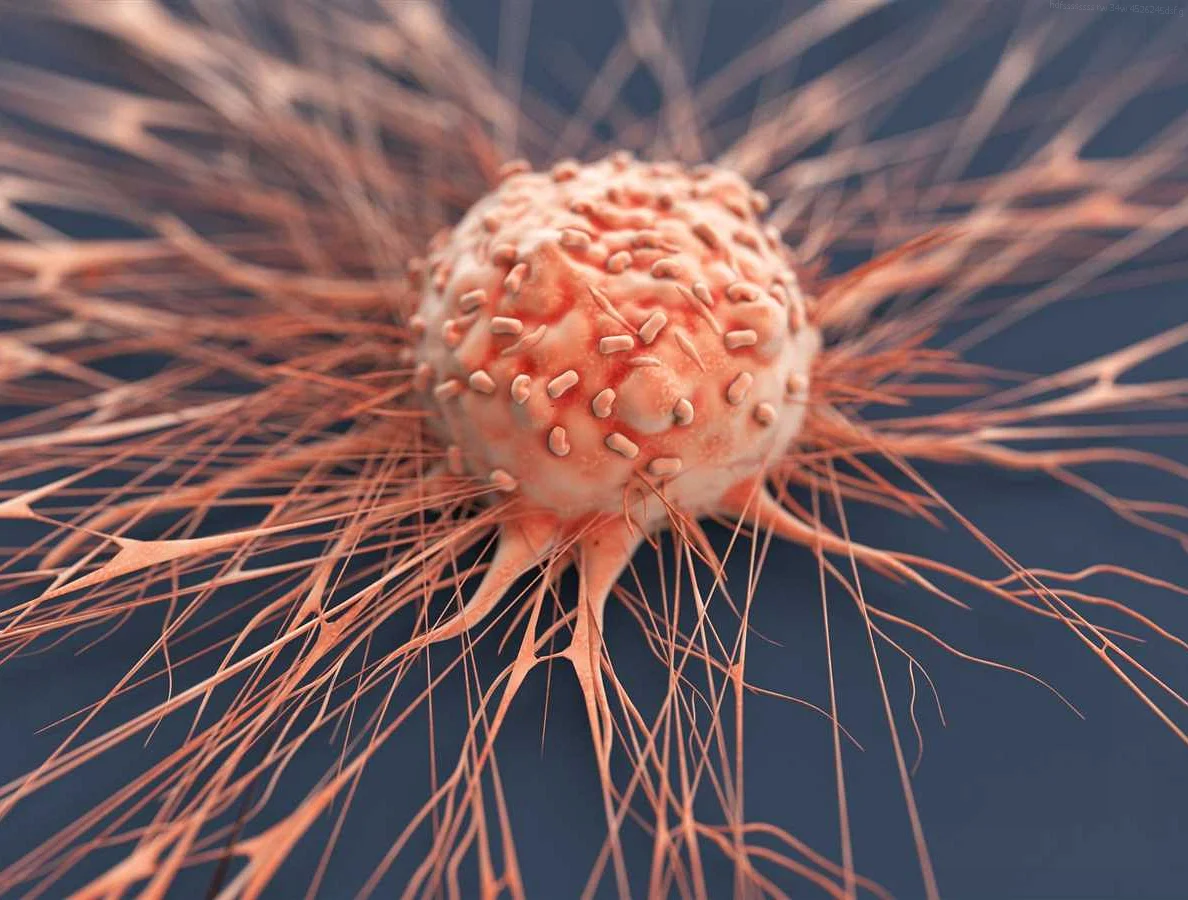A new era in cancer treatment?
Содержимое
Discover the latest advancements and breakthroughs in cancer treatment in this article exploring the potential of a new era in cancer treatment. Learn about cutting-edge technologies, innovative therapies, and promising research that could revolutionize the way we approach cancer. Stay up-to-date with the latest developments in oncology and the hope they bring for improved outcomes and quality of life for cancer patients.
Cancer has long been one of the most formidable enemies of humanity, affecting millions of lives worldwide. However, the tides are turning as medical technology enters a new era in the battle against this deadly disease. Revolutionary breakthroughs are paving the way for innovative treatments that hold the promise of more effective and personalized cancer care.
Advances in medical technology are transforming the landscape of cancer treatment on multiple fronts. One of the most exciting developments is the emergence of precision medicine, a groundbreaking approach that tailors treatment plans to an individual’s unique genetic profile. By analyzing the genetic makeup of a patient’s tumor, doctors can identify specific mutations and target them with precision, minimizing side effects and maximizing the chances of success.
Furthermore, the field of immunotherapy has witnessed remarkable progress in recent years. This innovative approach harnesses the power of the immune system to recognize and eliminate cancer cells. Immune checkpoint inhibitors, for instance, have revolutionized the treatment of certain types of cancer by unleashing the full potential of a patient’s immune response. As a result, patients who were once deemed incurable now have a fighting chance.
The Evolving Landscape of Cancer Treatment

Cancer treatment has come a long way in recent years, with revolutionary advances in medical technology transforming the traditional approach to fighting this disease. The landscape of cancer treatment is constantly evolving, as new therapies and treatments are developed and refined.
One of the most significant advancements in cancer treatment is the development of targeted therapies. These medications are designed to attack specific genetic mutations or proteins that are present in cancer cells, while sparing healthy cells. This targeted approach has shown promise in improving treatment outcomes and reducing side effects.
Immunotherapy is another area that has revolutionized cancer treatment. This approach harnesses the power of the immune system to recognize and destroy cancer cells. By stimulating the immune system, immunotherapy drugs have shown great potential in shrinking tumors and extending survival rates in certain types of cancer.
Advances in surgical techniques have also played a crucial role in the evolving landscape of cancer treatment. Minimally invasive procedures, such as laparoscopic surgery, allow for smaller incisions and faster recovery times for patients. Additionally, robotic-assisted surgery has enabled surgeons to perform intricate procedures with greater precision, minimizing damage to surrounding tissues.
Furthermore, the field of molecular diagnostics has seen significant advancements that have transformed cancer treatment. Through the use of genetic testing and molecular profiling, doctors can now determine the specific genetic mutations driving a patient’s cancer. This knowledge helps guide treatment decisions, allowing for personalized therapies that target the unique characteristics of each individual’s cancer.
Finally, advancements in supportive care have improved the overall quality of life for cancer patients. Palliative care and pain management techniques help alleviate the physical and emotional burden of cancer, focusing on the patient’s well-being throughout the treatment process.
In conclusion, the landscape of cancer treatment is continuously evolving, thanks to revolutionary advances in medical technology. Targeted therapies, immunotherapy, surgical techniques, molecular diagnostics, and supportive care have all contributed to improved treatment outcomes and patient experiences. As researchers continue to make groundbreaking discoveries, the future of cancer treatment holds even greater promise for patients worldwide.
Targeted Therapies: Precision in Cancer Treatment

In the field of cancer treatment, targeted therapies have emerged as a revolutionary approach that aims to provide precise and effective treatment options. Unlike traditional chemotherapy, targeted therapies are designed to specifically attack cancer cells while sparing healthy cells, resulting in fewer side effects for patients.
Targeted therapies work by targeting specific molecules and pathways that are involved in the growth and development of cancer cells. This precision approach allows for personalized treatment plans, as each patient’s cancer is unique and may have different molecular characteristics.
One of the key advantages of targeted therapies is their ability to inhibit the growth and spread of cancer cells. By blocking the signals that drive cell growth, targeted therapies can slow down or even stop the progression of cancer. This not only improves patient outcomes but also increases the chances of long-term survival.
Another advantage of targeted therapies is their potential to overcome drug resistance. Cancer cells can develop resistance to traditional chemotherapy drugs, making them less effective over time. However, targeted therapies can specifically target the molecular changes that lead to drug resistance, potentially overcoming this barrier and allowing for continued treatment success.
It is important to note that targeted therapies are not a one-size-fits-all solution. The success of targeted therapies relies on the identification of specific molecular targets in each patient’s cancer cells. Advances in medical technology, such as genetic testing and molecular profiling, have greatly improved the ability to identify these targets and tailor treatment plans accordingly.
Targeted therapies have already made a significant impact in the field of cancer treatment, with numerous successful cases reported. However, ongoing research and development are crucial to further improve the effectiveness and accessibility of targeted therapies. With continued advancements in medical technology, targeted therapies have the potential to revolutionize cancer treatment and provide new hope for patients worldwide.
Immunotherapy: Harnessing the Power of the Immune System
Immunotherapy is a groundbreaking approach in cancer treatment that harnesses the power of the immune system to fight against cancer. This innovative treatment option has revolutionized the field of oncology and has shown great promise in improving patient outcomes.
The immune system plays a crucial role in protecting the body against foreign substances, such as bacteria and viruses. However, cancer cells can often escape detection and destruction by the immune system, allowing them to grow and spread uncontrollably. Immunotherapy aims to boost the body’s natural defenses and help it recognize and attack cancer cells.
There are different types of immunotherapy, each with its own mechanisms and targets. One common approach is the use of immune checkpoint inhibitors, which block proteins that prevent immune cells from attacking cancer cells. By removing these checkpoints, the immune system can effectively target and destroy cancer cells.
Another type of immunotherapy is adoptive cell transfer, where immune cells are taken from the patient’s body, modified or trained in the laboratory, and then reintroduced into the patient to enhance their ability to recognize and kill cancer cells. This personalized approach has shown promising results in certain types of cancer.
Immunotherapy has demonstrated remarkable success in the treatment of various cancers, including melanoma, lung cancer, and kidney cancer. It has been shown to improve survival rates and offer durable responses in patients who have previously exhausted all other treatment options.
However, like any other treatment, immunotherapy can have side effects, ranging from mild to severe. These side effects occur as a result of the immune system being activated and can include fatigue, skin reactions, and inflammation of organs. Close monitoring and management of these side effects are essential for the safety and well-being of patients undergoing immunotherapy.
As research and clinical trials continue to explore the potential of immunotherapy, the future of cancer treatment looks promising. By harnessing the power of the immune system, immunotherapy offers a new era in cancer treatment, providing hope and improved outcomes for patients around the world.
Genetic Testing: Personalized Medicine for Cancer Patients
In recent years, advancements in medical technology have led to a new era in cancer treatment. One of the most significant breakthroughs in this field is the utilization of genetic testing for personalized medicine in cancer patients.
Genetic testing involves analyzing a patient’s DNA to identify specific genetic mutations or alterations that may contribute to the development of cancer. By understanding a patient’s unique genetic makeup, doctors can tailor treatment plans to target the specific genetic drivers of their cancer. This approach, known as personalized medicine, has shown promising results in improving patient outcomes and reducing the side effects of treatment.
Personalized medicine based on genetic testing allows doctors to determine the most effective treatment options for each individual patient. For example, if a patient has a genetic mutation that causes their cancer cells to be resistant to a certain chemotherapy drug, doctors can avoid prescribing that drug and instead recommend a targeted therapy that is more likely to be effective.
Furthermore, genetic testing can help identify individuals who are at higher risk of developing certain types of cancer. By detecting inherited genetic mutations, doctors can implement preventive measures and screening protocols to detect cancer at an earlier stage when it is more treatable.
Advances in genetic testing technology have made it more accessible and affordable for cancer patients. Many hospitals and clinics now offer genetic testing as part of routine cancer care. Additionally, companies like 23andMe provide direct-to-consumer genetic testing kits that allow individuals to learn about their genetic predisposition to certain types of cancer.
However, it is essential to note that genetic testing is not without its limitations. While it can provide valuable information, it does not guarantee a definitive diagnosis or predict the exact outcome of a patient’s cancer. Genetic testing results must be interpreted in conjunction with other clinical information and should be used as a guide rather than the sole basis for treatment decisions.
In conclusion, genetic testing has revolutionized cancer treatment by enabling personalized medicine for cancer patients. By understanding a patient’s unique genetic makeup, doctors can tailor treatment plans to target the specific genetic drivers of their cancer, resulting in improved outcomes and reduced side effects. However, it is crucial to approach genetic testing results with caution and use them as a guide rather than the sole basis for treatment decisions.